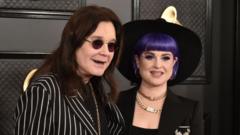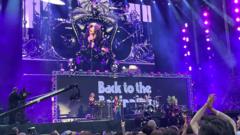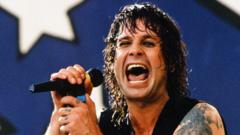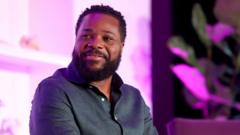Pope Francis, the first Latin American pontiff, died at 88 from a cerebral stroke. His legacy as a champion for the marginalized and advocate for inclusion in the Catholic Church has garnered global praise, igniting discussions among cardinals as they prepare to choose his successor.
Pope Francis Remembered: A Legacy of Humility and Global Outreach

Pope Francis Remembered: A Legacy of Humility and Global Outreach
World leaders and mourners gather to pay tribute to Pope Francis following his passing, reflecting on his humble lifestyle and inclusive teachings that reshaped the Catholic Church.
---
Vatican City witnessed an outpouring of grief and remembrance on April 21, 2025, following the death of Pope Francis, who passed away due to a cerebral stroke. At the age of 88, the pope's journey from humble beginnings in Argentina to the spiritual leader of over a billion Catholics left a profound mark on the Church and the world. Tributes from global leaders and mourners alike highlighted his dedication to social justice, climate issues, and outreach to marginalized communities.
In accordance with his wishes, Francis requested a modest tomb, void of extravagant decorations, with only the inscription "Franciscus." His commitment to living a life of simplicity and serving the underprivileged made him a beloved figure not only among Catholics but also among others across various faiths.
The pope's final public appearance just a day before his passing saw him blessing a crowd during Easter celebrations in St. Peter’s Square, a poignant event that now shapes the narrative of his final days. Cardinal Kevin Farrell, the acting administrator of the Vatican, announced Francis' death early in the morning, marking a significant chapter in the history of the papacy.
As the world mourns, speculation arises over the next steps for the Catholic Church. The process of selecting a successor is already underway, as cardinals from around the globe are set to convene for a conclave. This solemn yet historic meeting presents an opportunity to choose a leader who embodies the pope’s inclusive and progressive vision or revert to a more traditional approach.
Francis’ tenure was marked by groundbreaking discussions addressing the Church's position on critical issues ranging from immigration to climate change, reflecting a call to action rather than adherence to dogma. With his passing, the spotlight turns to the upcoming conclave and the potential candidates for the papacy, as the Church grapples with the legacy Francis leaves behind.
In the days following Francis’ death, public vigils and remembrances unfold across the globe, as individuals pay respects in places he cherished. His commitment to blending faith with social issues, and the warmth he extended to those in need resonate through his teachings, inspiring continued dialogue as the Church looks ahead.
Many who gathered in St. Peter’s Square and churches worldwide expressed their gratitude for his leadership. “He made me feel Christian again,” shared one mourners, reflecting the pope’s impact on nurturing faith in an increasingly complex world. As the simplicity of his final requests is honored, the enduring message of his papacy continues to inspire and provoke thought among both the faithful and nonfaithful alike.
Vatican City witnessed an outpouring of grief and remembrance on April 21, 2025, following the death of Pope Francis, who passed away due to a cerebral stroke. At the age of 88, the pope's journey from humble beginnings in Argentina to the spiritual leader of over a billion Catholics left a profound mark on the Church and the world. Tributes from global leaders and mourners alike highlighted his dedication to social justice, climate issues, and outreach to marginalized communities.
In accordance with his wishes, Francis requested a modest tomb, void of extravagant decorations, with only the inscription "Franciscus." His commitment to living a life of simplicity and serving the underprivileged made him a beloved figure not only among Catholics but also among others across various faiths.
The pope's final public appearance just a day before his passing saw him blessing a crowd during Easter celebrations in St. Peter’s Square, a poignant event that now shapes the narrative of his final days. Cardinal Kevin Farrell, the acting administrator of the Vatican, announced Francis' death early in the morning, marking a significant chapter in the history of the papacy.
As the world mourns, speculation arises over the next steps for the Catholic Church. The process of selecting a successor is already underway, as cardinals from around the globe are set to convene for a conclave. This solemn yet historic meeting presents an opportunity to choose a leader who embodies the pope’s inclusive and progressive vision or revert to a more traditional approach.
Francis’ tenure was marked by groundbreaking discussions addressing the Church's position on critical issues ranging from immigration to climate change, reflecting a call to action rather than adherence to dogma. With his passing, the spotlight turns to the upcoming conclave and the potential candidates for the papacy, as the Church grapples with the legacy Francis leaves behind.
In the days following Francis’ death, public vigils and remembrances unfold across the globe, as individuals pay respects in places he cherished. His commitment to blending faith with social issues, and the warmth he extended to those in need resonate through his teachings, inspiring continued dialogue as the Church looks ahead.
Many who gathered in St. Peter’s Square and churches worldwide expressed their gratitude for his leadership. “He made me feel Christian again,” shared one mourners, reflecting the pope’s impact on nurturing faith in an increasingly complex world. As the simplicity of his final requests is honored, the enduring message of his papacy continues to inspire and provoke thought among both the faithful and nonfaithful alike.



















